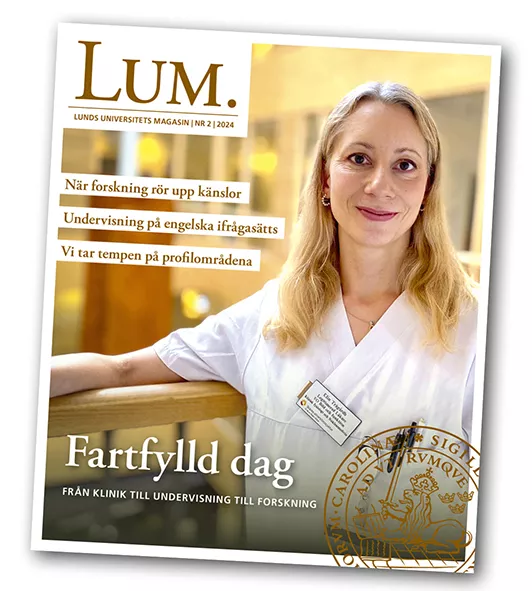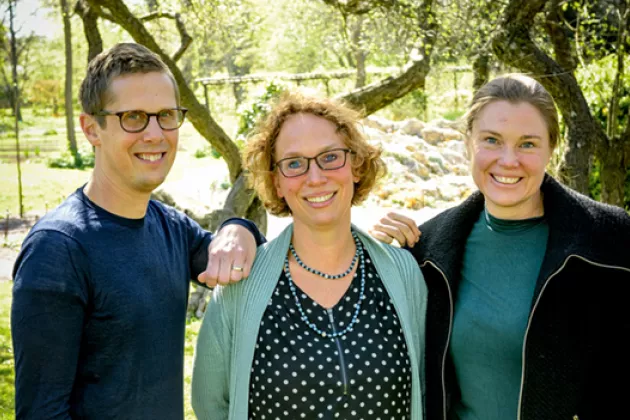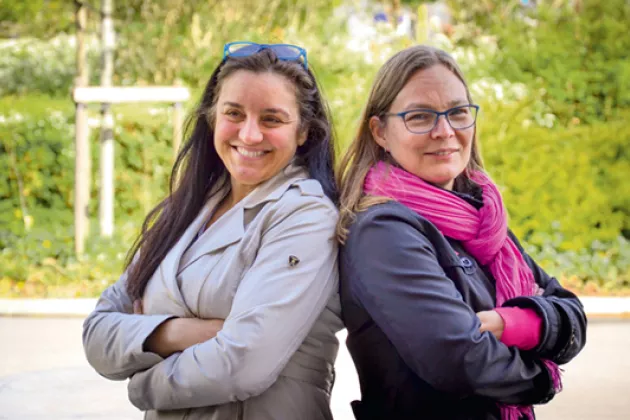One example is the concern that has been expressed in the organisation concerning how money will be allocated if the proposals of the government enquiry on governance and resources (STRUT) are introduced. One of the proposals of the Strut inquiry would mean increased direct government funding for higher education institutions and that funds would no longer be earmarked for education or research. This has caused uneasiness in the organisation.
“Sometimes I get downhearted in this debate, not everyone is confident that we can allocate the resources wisely – it is a management problem”, says Torbjörn von Schantz.
Torbjörn von Schantz, who has been head of department, dean, deputy vice-chancellor and vice-chancellor, believes in collegial leadership and maintains that deans now take more responsibility for the entire University – something that he considers has been a positive development for leadership.
“Progress is being made and it’s a considerable change compared with when I was a dean. Then, for example, the faculties’ agency capital was dynamite in the Deans Council and you protected your own interests”, he says.
The new interdisciplinary graduate school Agenda 2030 is an example of an initiative financed by agency capital and supported by the deans. Other examples are the collaboration initiatives and the ongoing discussion on liberal arts, different routes for broadening University students’ academic general knowledge.
“However, our Achilles’ heel is still that we are poor at assigning lower priority. Instead of reprioritising, we wait for new funding.”
Most management groups call them “strategic initiatives”. Many want to assign higher priority, not lower, at least not in their own operations. As vice-chancellor, Torbjörn von Schantz would like heads of departments, deans and administrative managers to have the strength to take more tough decisions on cuts – if it is best for the organisation as a whole.
“When I am thinking about backing out of a hard decision, I ask myself some probing questions – is the best decision to back out or does that just generate the least problems? I then have to renew my efforts if it’s not the best decision”, he says.
However, as a head of department, dean or administrative manager, being up to defending or at least explaining decisions that within a unit can mean a subject is discontinued or funding, services or popular duties disappear – that requires a leader.
“It can be terribly unpleasant and it’s important that managers are not left isolated at that moment”, says Torbjörn von Schantz, who remembers how these situations could be as a head of department or dean.
As vice-chancellor, he has better support from a management group that he has been able to select in part, and it has made a difference in making hard vice-chancellor’s decisions.
“Enriching work with management groups is close to my heart, and we have worked a lot with our own group”, says Torbjörn von Schantz.
At LU there are three ways to become a manager: academic leaders are selected, administrative manager positions are advertised in the usual way and being a research team manager often comes with the project – if you can succeed in getting funding that enables employment. Everyday work can vary a lot for managers at the University, some are full-time managers, while for others management is only a small part of their duties.
New guidelines for managers at the University have been in force since March. The guidelines clarify that each management task, regardless of the scope, consists of three roles: employer, leader and operations manager. The new guidelines are intended to make expectations on managers clearer and form the basis for continued work on developing support for managers.
“It’s an excellent initiative to bring together all the support for managers in one platform and to develop leadership courses that more people can attend”, says Torbjörn von Schantz and refers to the initiatives of Human Resources, which include interviews with heads of department and research team leaders.
Previously, it was far more common for someone to become a head of department even though it was something they hadn’t really wished for – it was rather a case of being “my turn to contribute”. Torbjörn von Schantz considers that the view of leadership has slowly changed and that there is now a real interest among more people – and it is important to look for the leaders of tomorrow among the team players.
“We must keep our eyes open for those who don’t just think about themselves, but are always willing to help others. Those who have collective ability – they are the leaders we need.”






